"Although applying to somewhere as prestigious as Cambridge can seem as though it will be really expensive, both the university and your College provide lots of financial assistance."
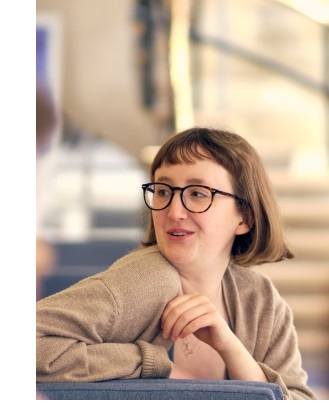
Alice is from Bradford, in West Yorkshire, and wrote this at the end of her first year studying History here at Christ’s College, Cambridge. At school, Alice sat A-Levels in History, German, and English Literature.
What aspects of your course attracted you to it specifically?
I think the sheer breadth of the History course at Cambridge is a really attractive factor for me, but also the freedom to choose papers yourself, according to your interests. Within the paper requirements I have been able to pursue my passion, which is Modern History, whilst also studying earlier time periods, giving me a much broader overall view. Also, within the papers themselves there is so much choice and freedom to follow your interests, and the one-on-one supervisions allow for in-depth discussions and tailoring the course to your needs.
How did you choose a College?
I originally applied to St Catharine’s College, because I’d been on a History Taster Day there, which was the only time I’d visited Cambridge before applying. I really enjoyed both History and German at school, and so applied to do History and German in the History and Modern Languages course. I did my interview at St Catharine’s, then was placed in the Winter Pool and offered a place at Christ’s to read History instead. I was so happy to receive an offer, that the fact that I would be going to a different College didn’t really register. I was quite apprehensive about going to Christ’s, because I’d never visited it before, but after looking online and contacting the College I was really excited to start in October!
Although applying to somewhere as prestigious and old as Cambridge can seem as though it will be really expensive, both the university and your College provide lots of financial assistance, which can make your time here much easier. I receive the Cambridge Bursary from the university, as well as help from College with rent in Lent and Easter Terms. I also applied for a travel grant for this summer, which helped me with my summer plans, visiting various places and museums related to my studies.
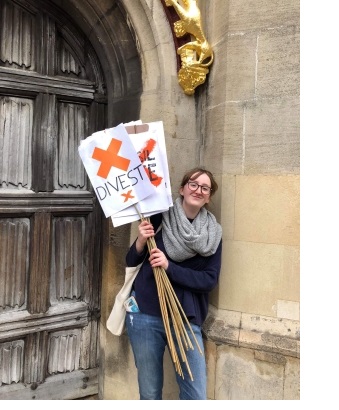
divest from its investments in fossil fuels
What do you think of the collegiate system in general?
I think the collegiate system is great in terms of helping you to gain a really solid footing at Cambridge when you arrive. Most socialising and acclimatising to Cambridge life is done in College, and with around 125 people in each year at Christ’s, it’s a really great environment to make friends in. I also really enjoy the fact that Christ’s is a close knit environment, as it means that I have made really good friends in other years, and across different subjects.
I have a few friends at other Colleges, who I see throughout the term, and it’s great to visit their Colleges. I also often visit and spend time at other Colleges as part of extra-curricular activities, particularly with the climate activism group Zero Carbon.
How did you find the application process?
I found the application process overall quite hard, but also exhilarating. Meeting the early deadline on October 15 was quite a rush, and required a lot of effort consulting with teachers and asking for help, but this really did benefit me in the end. The waiting in between each stage of my application was agonising, but when I got the email inviting me to interview it all seemed worth it. It was really interesting thinking about what to write in my personal statement, why I wanted to come to Cambridge, to study History (and German at that point!), and how I was going to showcase my talents and passions in the best possible light.
When I applied, there was a History Admissions Assessment [Admissions edit: there are changes to this so check info on the History page]. I practiced by doing past papers, which were available online. For the comparing primary sources element of the exam I wrote a few practice answers which I then went through and discussed with my teacher, which was good for building my confidence.
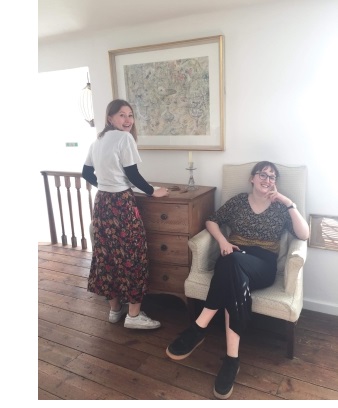
Was the interview what you expected it to be?
I had expected to be interviewed by more than one academic (as they do at Christ’s for history), but both the German and History elements of interview at St Catharine’s were one-on-one. This was great for History, where the conversation flowed very naturally, but in German was more stressful as this was definitely my weaker subject and the interview I was most nervous for. In my History interview we focused heavily on one element of my personal statement, which launched a wider conversation about historiography and historical methods, and then the second half of my interview was based on the written work I had sent in. Though the questions became increasingly harder and I definitely felt tested, I never felt completely out of my depth. The academics are simply trying to get the best out of you, not to trip you up!
I’m not sure how much I actually did in preparation for my interview. I think a lot of the work for it isn’t always obvious, and everyone prepares differently. Things like reading for pleasure around your subject, or even historical fiction can be really useful. I read 'Wolf Hall' and 'Bring Up the Bodies' by Hilary Mantel as extra reading for the Tudors module of my History A-Level, and I’m sure that the wonderful writing and thought-provoking nature of the novels prepared me better and got me more passionate about history than pouring over flashcards ever did! Chatting to friends, teachers and family about your subject, the news, and what you’ve been reading recently is a brilliant way of honing your spoken arguments and confidence for interview. Watching videos of mock interviews online can be useful, but I would caution against too much of this as sometimes it can really stress you out! It’s much better to focus on knowing your personal statement, and the books and ideas you mentioned in it as well as you can.
"Chatting to friends, teachers and family about your subject, the news, and what you’ve been reading recently is a brilliant way of honing your spoken arguments and confidence for interview."
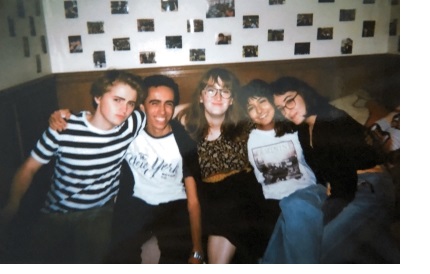
How was your Freshers’ Week?
Freshers’ Week was a complete blur! Adjusting to moving away from home for the first time is hard enough for any new university student, but with the peculiarities of Cambridge added on top the experience was a little mind-boggling. Whilst my mates at other universities were contending with five nights out in a row, I was putting on my gown for Matriculation Dinner with some of the foremost academics in my subject. To say the experience was surreal is an understatement. Despite the craziness of it all, College and university activities such as the Freshers’ Fair helped me to feel excited about my upcoming time in Cambridge, and I met some lovely people, who are still my friends now! I think the important thing in Freshers’ Week is to take time for yourself to explore Cambridge, and think about what you want from your time there.
Meeting loads of new and interesting people was definitely one of my favourite parts of Freshers’ Week - it was in that first week, all thrown together that we made those connections. It was my birthday in the second week of term, and we had a big party with loads of the first years in College, which was a great way to celebrate and feel welcome in the College community.
How does your teaching work?
In History there’s one supervision per week, for which you prepare a 2000 word essay. Lectures aren’t essential to the history course (you won’t be penalised for not attending them), but they are very useful. It’s worth having a detailed look through the course guide and working out which lectures you’d like to go to, and which ones will be most useful, and creating your own timetable based on that.
We also have HAP (Historical Argument and Practice) classes in College, where you are expected to read a few articles beforehand and then turn up to discuss them in a group. In Lent and Easter term of first year you also have eight Themes and Sources classes in the faculty, which you choose at the end of Michaelmas Term. These are also discussion and reading based.
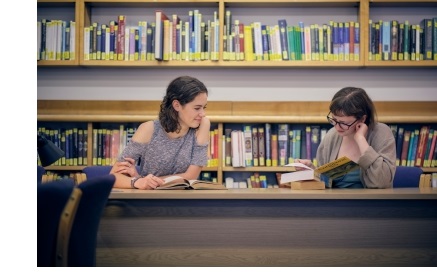 How does your workload now compare to your workload at school?
How does your workload now compare to your workload at school?
The workload is very different! In humanities subjects there aren’t a lot of contact hours, so the work you are doing is almost entirely self-directed, which can be daunting at first. The only thing you have to go to every week is your supervision, as lectures are optional, but I would really recommend going to the ones which are relevant to you. This is so different from school, and takes quite a bit of getting used to - I only really figured out my optimum working pattern in third term. Next year I’m going to try keep my work and relaxation time very separate, by going out in the day to work at one of the many libraries or cafes Cambridge has to offer, and then coming home in the evening to relax.
Deadlines can pop up out of nowhere in the history course - you blink and then all of sudden you have an essay deadline, reading for a Historical Argument and Practice class and notes for a Themes and Sources class all due on the same day. It’s really important to plan your time in advance, and actually look ahead in your diary to remind yourself of these surprise deadlines!
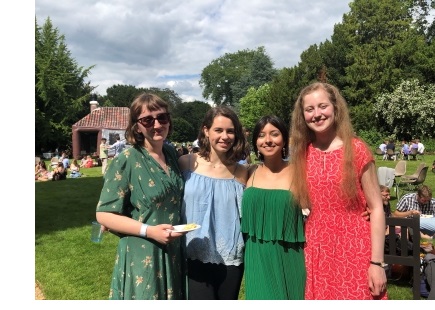 What has been your favourite topic from this year?
What has been your favourite topic from this year?
My favourite paper has been Paper 11, which British Social and Economic History from 1880. I was quite grumpy about having to take two papers focused on British history, but this paper in first term was a real pleasant surprise! My supervisor really eased me into the stresses of an essay a week with helpful written feedback and clear constructive criticism. They also allowed me to tailor the paper to my interest (barely any economic history!). We looked a lot at women, feminism and issues of race and immigration, and I have managed to continue to focus on these interests in my other papers too.
What do you do when you’re not working?
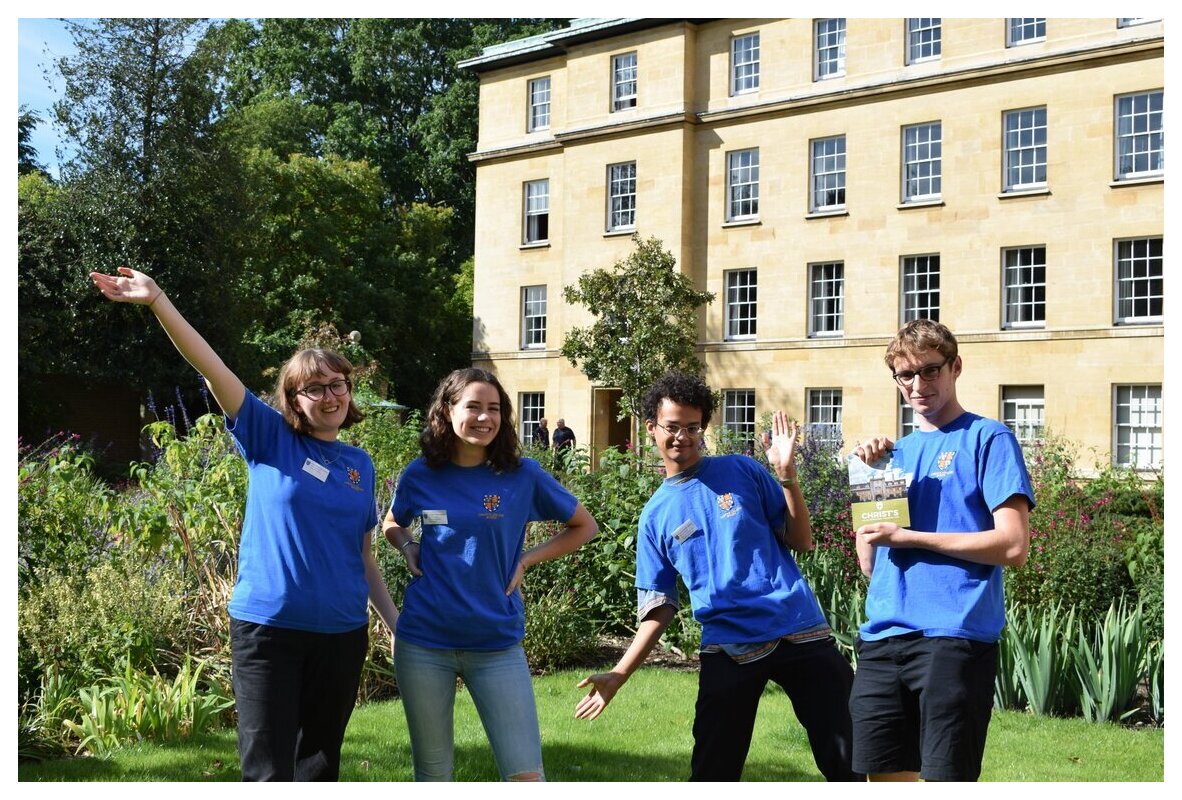
This year I have definitely managed to do lots of things on top of my academic work, sometimes well, and sometimes with added stress! I am a member of the Christ’s JCR (kind of like the College student council), as the Green Officer, which involves lots of meetings and organising. I have also been involved in student activism in Zero Carbon (a University-wide campaign for divestment of the University’s endowment from fossil fuels) and the Living Wage Campaign. I have also been involved in College mixed lacrosse, having never played before! This is a really chill way to get involved in sports at uni, as College-level games are very relaxed and fun. Finally, I have been involved in CADS, the Christ’s drama society, performing in the Christmas Panto and the May Week Shakespeare production. The brilliant thing about Cambridge is the sheer amount of stuff going on in term time – there’s such a variety of activities and events that there’s definitely something for everyone.
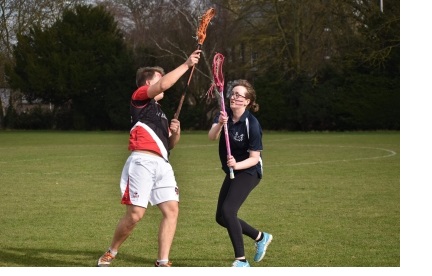 I didn’t come to Cambridge expecting the political and activist scene to be as exciting as it is, but spoke to some people at the University Fresher’s Fair and it seemed quite exciting, so a friend and I went along to the first meeting of Zero Carbon and got stuck in. The weekly meetings were a great way to get to understand the campaign and slowly get more involved, by week 4 of first term I was helping to run an educational workshop on the climate crisis. Getting involved in big groups like Zero Carbon, or student politics can seem quite intimidating to start with, but everyone is really friendly and keen for new people to get involved, so if you’re interested come along to a meeting!
I didn’t come to Cambridge expecting the political and activist scene to be as exciting as it is, but spoke to some people at the University Fresher’s Fair and it seemed quite exciting, so a friend and I went along to the first meeting of Zero Carbon and got stuck in. The weekly meetings were a great way to get to understand the campaign and slowly get more involved, by week 4 of first term I was helping to run an educational workshop on the climate crisis. Getting involved in big groups like Zero Carbon, or student politics can seem quite intimidating to start with, but everyone is really friendly and keen for new people to get involved, so if you’re interested come along to a meeting!
"The brilliant thing about Cambridge is the sheer amount of stuff going on in term time – there’s such a variety of activities and events that there’s definitely something for everyone."
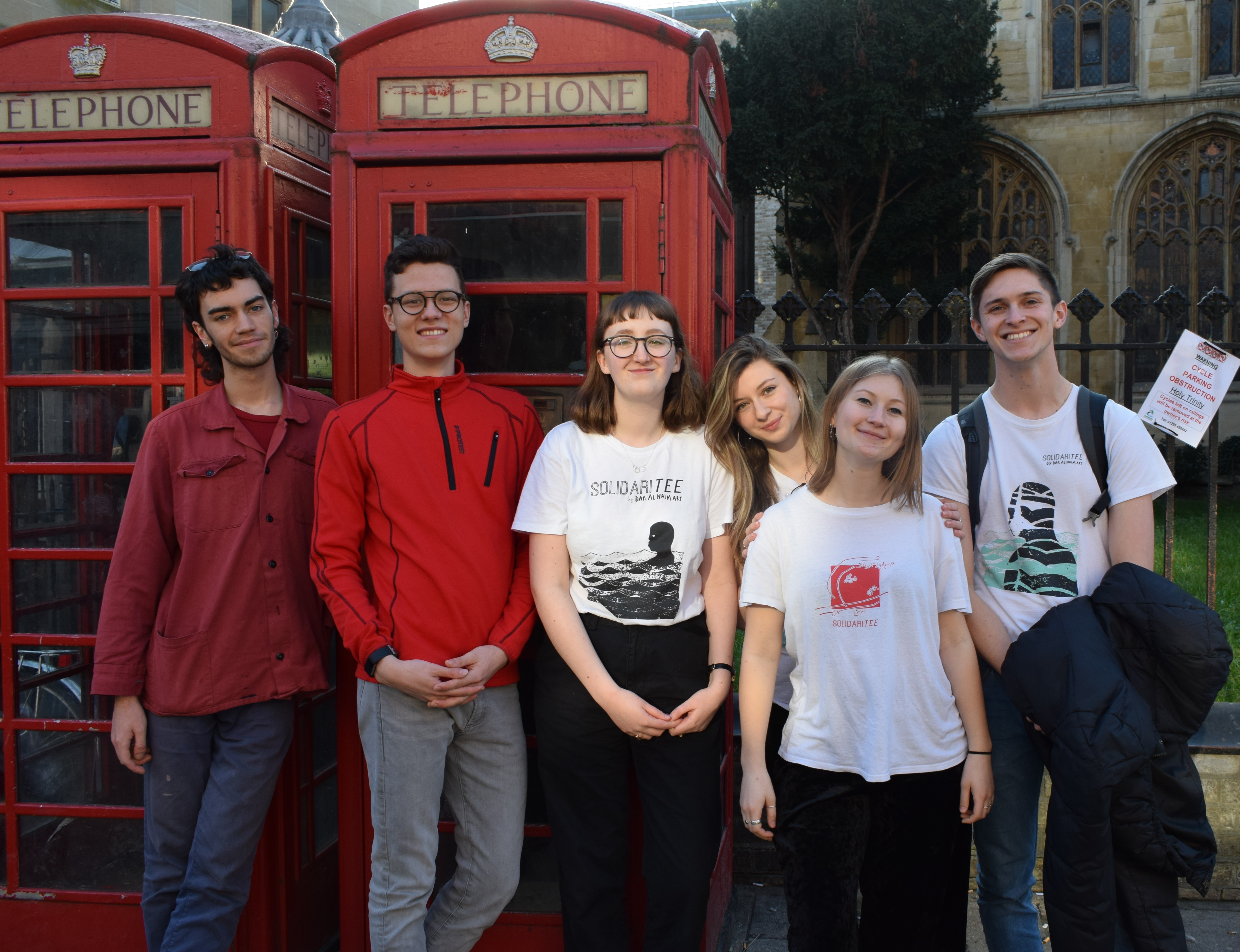
How do you spend your holidays?
I spend my holidays mostly at home, in Bradford, with my family. The long holidays are great for going to visit friends at other universities, and to have some time for relaxing after the short, intense Cambridge terms. College grants for travel in the Easter and Long vacations are also amazing if you need (or want) to travel to do research for your degree.
For the first two weeks of Easter vacation I stayed in College to work on the Telephone Campaign, which happens every year to raise money for the Student Support Fund, which funds bursaries and grants to help students throughout their degree. This was a great thing to do as you only ring alumni in the evenings, so I was able to spend the days exploring Cambridge, see friends, start revision, and enjoy the sunny weather!
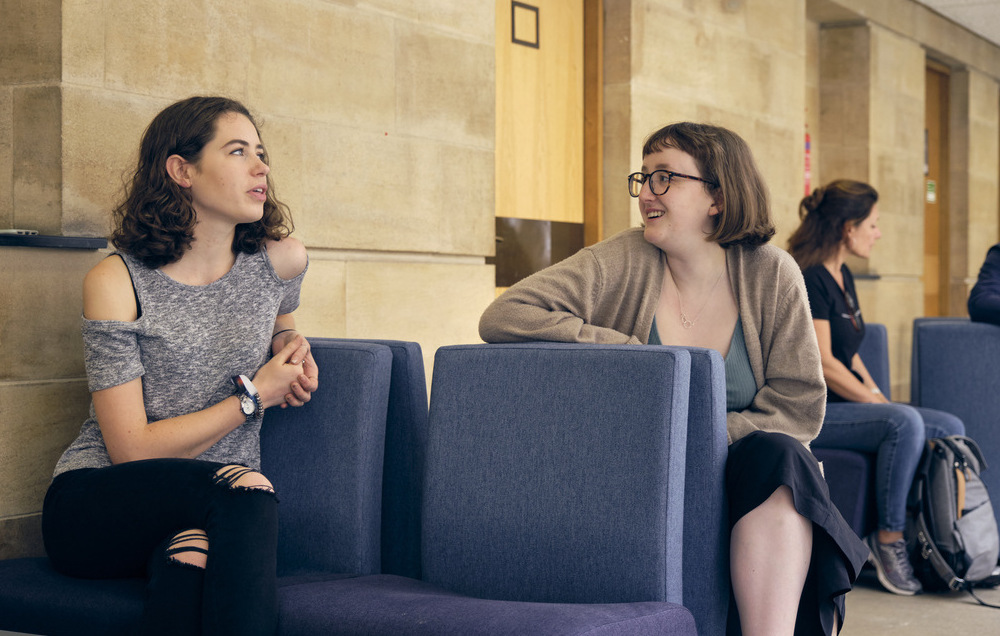
What are you most looking forward to next year?
Next year I’m really looking forward to living in a College-owned house on Jesus Lane. Around half of the second years at Christ’s live in these houses every year, and I’m excited to live with my friends and have a bigger kitchen to cook in!
I’m taking Paper 6, which is British Political History since 1880, which will be a really interesting companion to paper 11, British Social and Economic History since 1880. I’m also taking paper 16, European History 1450-1760, which is a period somewhat out of my comfort zone, but I’m excited to perhaps use my German for some topics.
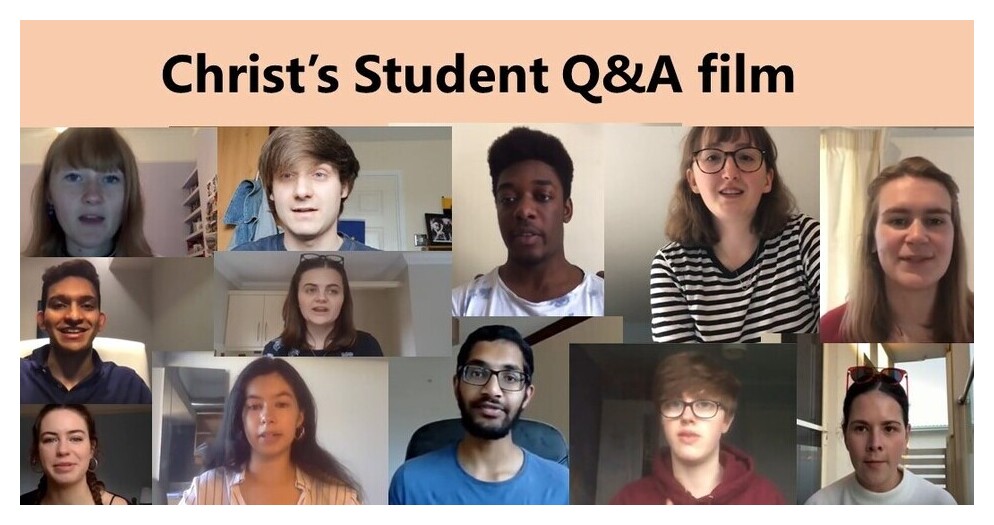
August 2019
Please be aware if you're considering an application that our student writers describe their experiences. Although the majority of the information stays the same, some details may change from year to year. Do read the student profiles in combination with our undergraduate admissions pages for full information.
Back to Student profiles page / History at Christ's / History Taster Day / Next: Sathya's profile
